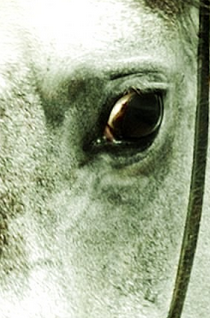Studs buck coal approval
 The threat of a new mining approval has spooked horse stud operators in the Hunter Valley.
The threat of a new mining approval has spooked horse stud operators in the Hunter Valley.
Two highly profitable industries are butting heads over the effect that one can have on the other.
The New South Wales Government recommends the approval of Anglo American’s Drayton South mine expansion plans, but its green light has raised fears for the future of neighbouring horse studs.
But independent candidate for the seat of Upper Hunter and former mayor, Lee Watts, said most of the opposition to the plan is coming from people living "nowhere near the coal face".
Watts has told the ABC that some submissions made suspect claims about possible negative outcomes.
"All submissions need to be looked at and there may be people genuinely impacted by the expansion and their views actually deserve to be heard and ways to reduce the impact need to be found," Watts said.
"But more than half of the submissions are not from those people, they are the people who are nowhere near the coalface.
"So, I think people who are part of our community need to be heard."
Anglo American’s original plans were rejected by the Planning Assessment Commission because it found they would negatively impact the thoroughbred industry and the local environment.
But the department has now signed-off on the new plans, despite them not meeting all the Commission's initial recommendations.
The green light comes at a rough time for employment in the Hunter region mining sector, with hundreds of jobs cut lately, some assume the planning has been relaxed so that the Drayton South mine expansion can retain the jobs of 500 mine workers, as it has promised.
The Government claims that the $370 million project will have a comprehensive set of conditions to reduce the impact from work to mine 100 million tonnes of coal.
The Planning Commission acknowledged that there would be air, noise and blasting impacts, but says they will not be significant enough to affect nearby Coolmore and Woodlands studs.
Anglo American's project director for Drayton South, Rick Fairhurst, told the ABC he is encouraged by the planning approval.
“We welcome this very positive step forward for the project because it's very encouraging news for our employees,” he said.
“It also provides us with some certainty around the next steps going forward.
“It's also very good news for the community, we believe, which is already starting to see some of the impacts of current difficulties in the mining industry and the region.”
But a spokesperson for the Hunter Thoroughbred Breeders Association said Planning's decision does nto match its previous rejections.
“It's fair to say we're completely shocked that the Department of Planning would make this recommendation in complete opposition to what the Planning Assessment Commission and the Gateway Panel recommended,” he said.
“Both suggested that this mine should not go ahead and that the thoroughbred industry should be given and particularly these two studs should be given the highest level of protection possible.
“The thoroughbred industry in the Hunter Valley relies on the presence of the international standard stallion farms and Darley and Coolmore are two of these.
“We start to impose conditions where those two farms can't operate and they happen to leave the Hunter Valley, then potentially the other large operators in the Valley look at whether that critical mass can be retained in the Valley or whether everyone needs to look at other alternatives.”








 Print
Print